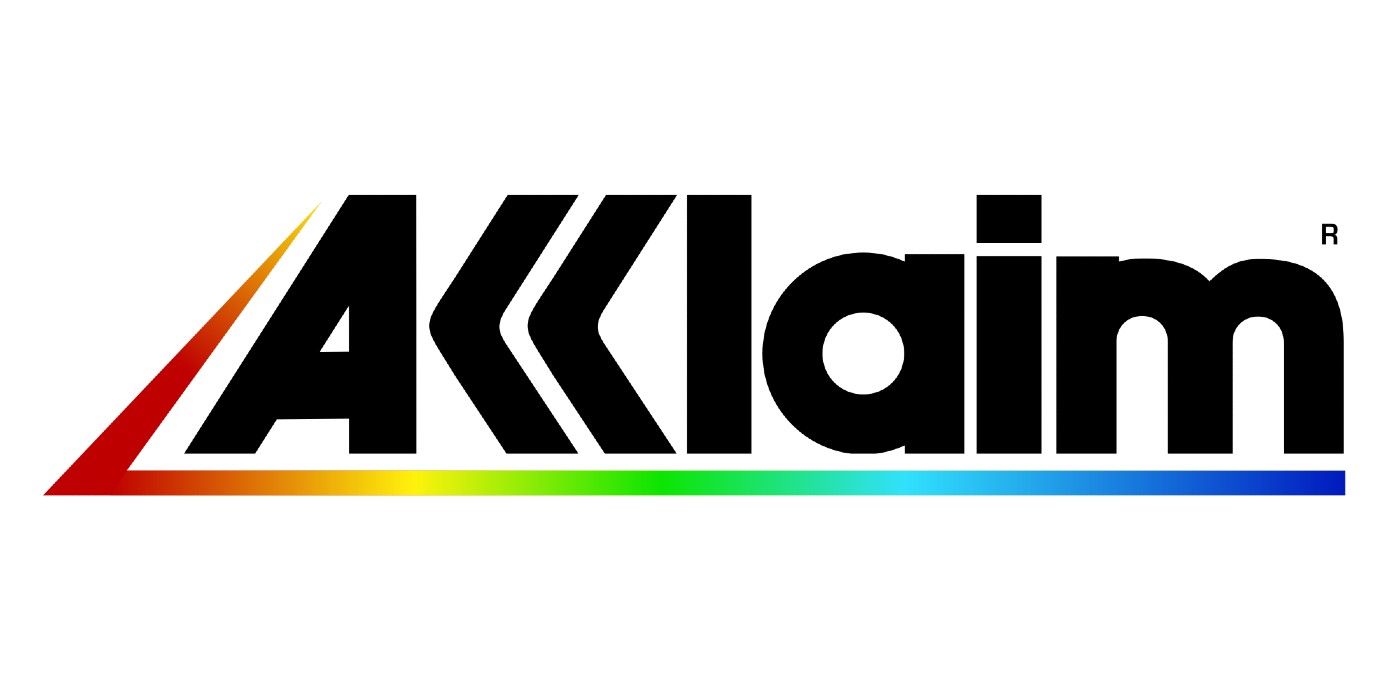Acclaim Entertainment. You may have seen the name before if you were around the video games scene in the 1990s. In fact, you probably saw them a lot as they were among the top video game publishers of the decade. The game publisher released the Double Dragon games on NES, The Simpsons games, the Mortal Kombat home versions, the NBA Jam series, the Turok series, the WWF games before WWF Smackdown, and plenty more. However, some bad decisions and some controversial marketing in the 2000s sealed the company's fate and on September 1, 2004, it closed its door for good. In honor of the 15th anniversary of its closure, let's take a look back at the history of the company. From its successes, to its failures, and ultimately its gambles. This is Acclaim Entertainment.
Acclaim Entertainment was founded by Greg Fischbach, Jim Scoroposki, and Robert Holmes. They met while working at Activision in the early 1980s. Fischbach left Activision to work at RCA Records but was let go after they were acquired. In 1987, Fischbach and Scoroposki met and discussed starting a new business venture. They eventually decided to re-enter the video games business and called Robert Holmes to join in. For a name, the trio chose Acclaim as it was customary for ex-Activision employees to name their new company something alphabetically above Activision. It's something Activision had done, too, as that company was founded by ex-Atari employees. And another new publisher at the time Accolade (responsible for Bubsy) did the same thing.
Early in the company's lifetime, they found success with licensing other properties from other companies. They published games based on franchises like Rambo, Knight Rider, and Total Recall just to name a few. Many of these games sold well based on the names alone but they quickly learned to publish games that were hits in the arcade to the home console. Not all publishers at the time had home console divisions or even American divisions so they racked up big title names like Mortal Kombat, Smash T.V., and Double Dragon. One of these games was NBA Jam and Acclaim managed to successfully acquire the IP from the original company Midway via a lawsuit. Eventually, the company acquired three development studios, Iguana Entertainment, Probe Entertainment, and Sculptured Software, and started making titles on their own.
Acclaim continued to have great success with licensed games including South Park in late the 1990s. However, the company's biggest success proved to be the Turok franchise, which proved to be a million-dollar franchise for them. They also started to have success on their own thanks to the Extreme-G racing series and other games such as Forsaken. Acclaim's new sports titles and Acclaim Sports brand performed well enough, with the Baseball line of games arguably doing the best, and showed the company trying new things. However, this is when the company also started to have some strong failures. Its WWF games were not meeting the success of the WCW games made by THQ and despite being a partner for over a decade, the WWF dropped the publisher unexpectedly for THQ. Also, while Acclaim had acquired the NBA Jam name, its own entries into the franchise were middling and failed to be a market success.
By 2000, Acclaim had managed to get into a rough spot. The publisher had acquired the rights to make games based on ECW and released two titles, but ECW filed for bankruptcy in 2001 while it still owed Acclaim money. Acclaim then tried to enter the extreme sports genre with a new brand -- Acclaim Max Sports -- later called AKA Acclaim. While some mild success was found with the Dave Mirra Freestyle BMX series and Jeremy McGrath Supercross World, other titles such as Aggressive Inline and SX Superstar failed to sell. And then there was BMX XXX, which is infamous for being one of the worst titles released in the sixth generation. Acclaim during this time also signed a deal with the Olsen Twins, Mary Kate and Ashley, to produce games for female gamers. However, after nine titles over four years, the Olsen twins filed a lawsuit against Acclaim as they never paid the twins royalties for any of the games.
Finally, despite using some crass marketing to sell Shadow Man: 2econd Coming, and Turok: Evolution, both failed to sell. By 2003, Acclaim was publishing mid to low tier titles for licensed games, Sega Dreamcast ports to the PlayStation 2 and GameCube, and a final few ideas that failed to connect, including Vexx, a reboot of NBA Jam, and sports games including Rugby and the Australian version of Football. On August 20, 2004, Acclaim's agreement with its primary lender GMAC Commerical Finance expired. The publisher then closed all of its facilities on August 27. All employees at Acclaim Austin and Acclaim New York were let go. Acclaim announced on August 30 that it was going bankrupt and on September 1, the company filed for Chapter 7 bankruptcy in Central Islip, New York.
Acclaim Entertainment's legacy is a mixed one. On one hand, there's no denying the company was one of the biggest publishers of the 1990s, releasing many games that many 90s gamers recognize. It published titles that wouldn't have had a publisher in America such as the Double Dragon series. It also created the Turok series, which is one of the very few first-person shooters before Halo that found success and worked on a console. On the other hand, Acclaim was responsible for releasing a lot of abandonware. Ultimately, the publisher was a victim of the video games industry going mainstream. While Acclaim may have been a big publisher at one point, being anything less than a triple-A publisher in the 2000s was not going to cut it. The company made some bad business decisions but ultimately, its undoing was being unable to change with the times.

